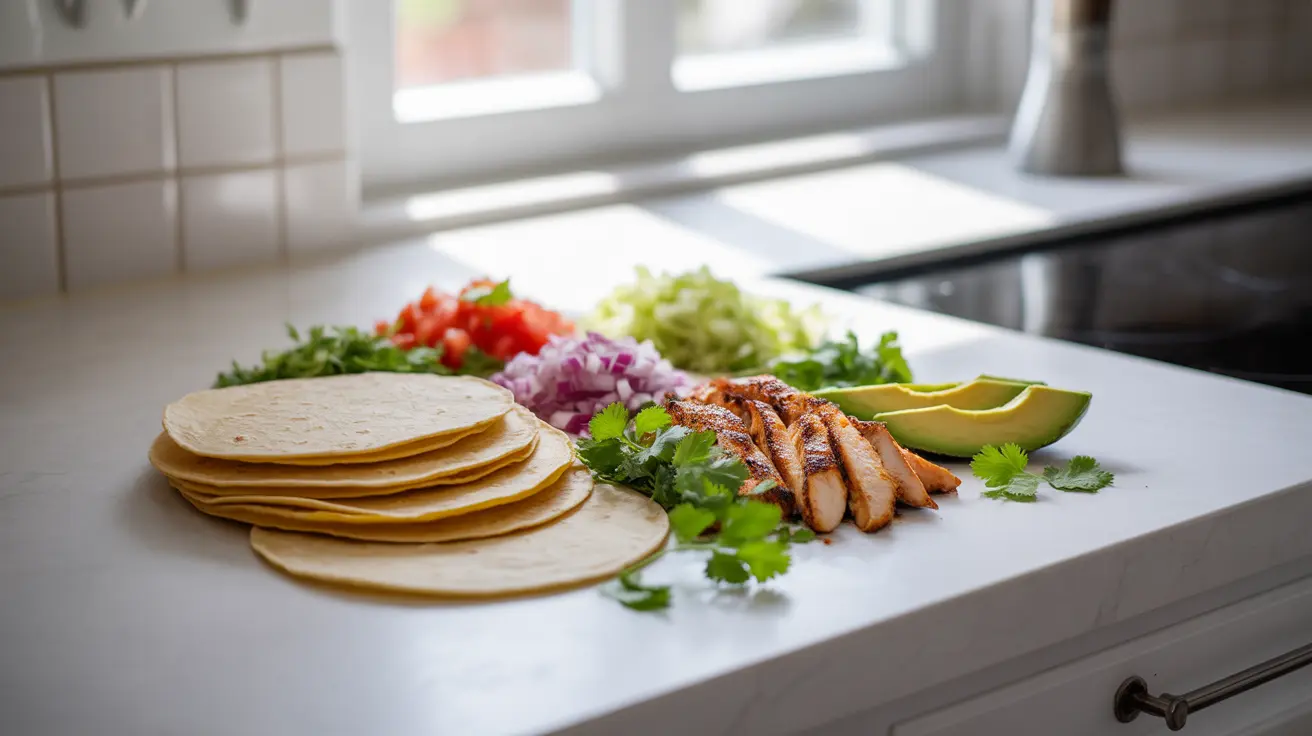Tacos have become a beloved staple of modern cuisine, but many people wonder about their nutritional value and place in a healthy diet. Understanding the nutritional composition of tacos and making informed choices about ingredients can help you enjoy this versatile dish while maintaining a balanced diet.
In this comprehensive guide, we'll explore the health benefits of tacos, examine different ingredient options, and provide practical tips for creating nutritious taco meals that don't sacrifice flavor.
The Nutritional Value of Taco Components
Tortilla Choices and Their Impact
The foundation of any taco starts with the tortilla, and your choice between corn and flour can significantly impact its nutritional value. Corn tortillas typically offer fewer calories and carbohydrates compared to flour tortillas, while also providing essential nutrients like fiber and whole grains.
Key nutritional differences between tortilla types:
- Corn tortillas: Higher in fiber, naturally gluten-free, fewer calories
- Flour tortillas: Higher protein content, more versatile, but generally higher in calories and carbohydrates
Protein Options and Their Health Benefits
The protein filling you choose can make a significant difference in your taco's nutritional profile. Lean protein options provide essential nutrients while keeping saturated fat content in check:
- Grilled fish (rich in omega-3 fatty acids)
- Lean ground turkey or chicken (lower in saturated fat)
- Plant-based options like black beans or lentils (high in fiber and protein)
- Grass-fed lean beef (better fatty acid profile than conventional beef)
Making Healthier Taco Choices
Nutritious Toppings and Garnishes
The right toppings can transform your taco into a nutrient-dense meal:
- Fresh vegetables (tomatoes, onions, peppers)
- Leafy greens
- Fresh cilantro
- Avocado (healthy fats)
- Low-fat cheese options
Smart Preparation Methods
How you prepare your taco ingredients can significantly impact their nutritional value:
- Grilling or baking instead of frying
- Using minimal oil when cooking
- Opting for fresh ingredients over processed ones
- Preparing beans and sauces from scratch
Restaurant vs. Homemade Tacos
While restaurant and fast-food tacos can be convenient, homemade versions typically offer better nutritional value. When preparing tacos at home, you have complete control over ingredients, portions, and cooking methods, allowing you to create healthier meals.
Frequently Asked Questions
Are tacos a healthy meal option and what ingredients make them nutritious?
Tacos can be a healthy meal option when made with nutritious ingredients. Key components include lean proteins, whole grain tortillas, fresh vegetables, and healthy fats like avocado. The combination of these ingredients provides a balanced meal with protein, complex carbohydrates, fiber, and essential vitamins and minerals.
What is the difference between corn and flour tortillas in terms of health benefits?
Corn tortillas generally offer more health benefits than flour tortillas. They contain fewer calories, more fiber, and are naturally gluten-free. They also have a lower glycemic index, making them a better choice for blood sugar control. However, both can fit into a healthy diet when consumed in moderation.
Which types of protein fillings in tacos are better for heart health and lower in saturated fat?
Fish, lean poultry, and plant-based proteins like beans and lentils are excellent choices for heart-healthy tacos. These options are lower in saturated fat compared to fatty cuts of beef or pork, and many provide heart-healthy omega-3 fatty acids or beneficial plant proteins.
How can I make tacos healthier by choosing toppings and preparation methods?
Choose fresh vegetables, herbs, and lean proteins while limiting high-calorie additions like sour cream and excess cheese. Opt for grilling or baking ingredients instead of frying, and consider using Greek yogurt as a healthier alternative to sour cream. Include plenty of fiber-rich vegetables and use portion control with higher-calorie ingredients.
Are fast-food tacos less healthy than homemade tacos, and why?
Yes, fast-food tacos typically contain more sodium, saturated fat, and calories than homemade versions. Restaurant tacos often use processed ingredients and may be fried or prepared with excess oils. Homemade tacos allow you to control ingredients, portions, and cooking methods, making them a healthier choice overall.




